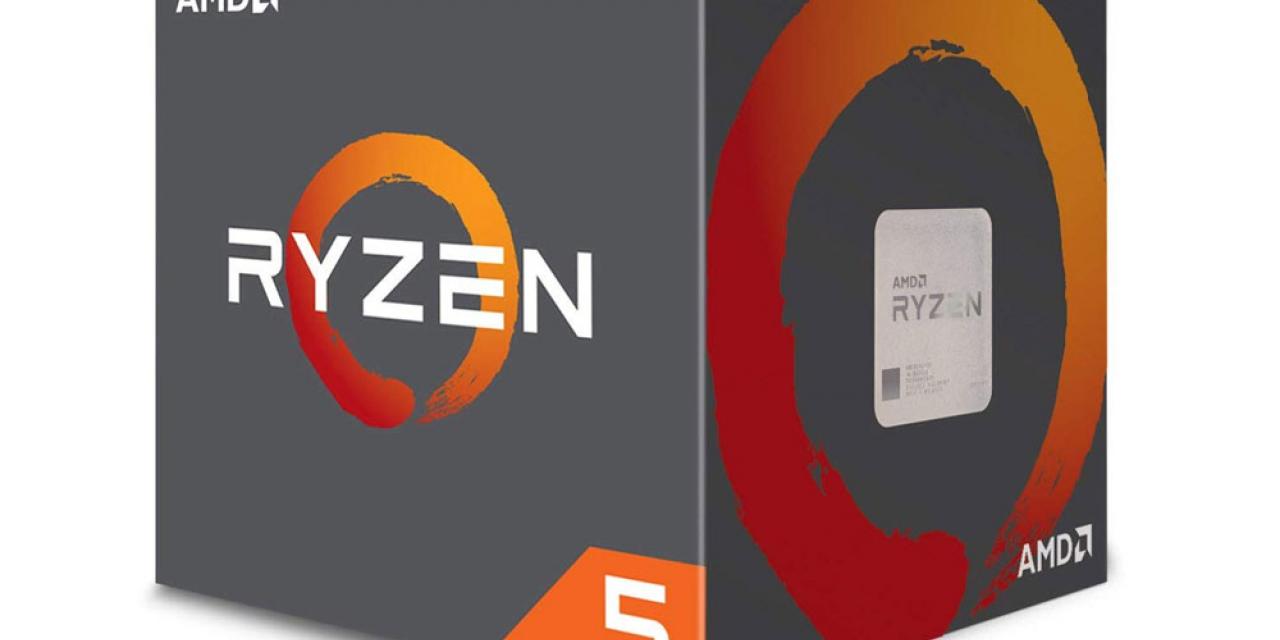
There have been a number of exciting hardware launches in 2018 and many of them have been fantastic. Not all of them have been great value though and if you're looking to get yourself an upgrade as a bit of a holiday treat, you want to make sure you're focusing on the best bang for buck hardware options out there.
So, as we look back on 2018 and the various hardware releases from different companies and their back catalogs, here are our favourite value buys for gaming PCs at the end of the year.
AMD Ryzen 2600
AMD's second-generation Ryzen CPUs are far less of an upgrade over their predecessors than the first-generation Ryzen chips, but they do make for a small performance boost over the first generation. Really though, the Ryzen 2000-series just solidified AMD's CPUs as solid contenders for almost anything Intel has to offer and as usual, AMD delivers on value too.
The 2700X is an awesome chip with fantastic multitasking capabilities and the Threadripper CPUs are ludicrously powerful for professionals and enterprises, but for gamers, the Ryzen 2600 is an amazing buy. Regularly found for between $150 and $200 with a reasonable cooler (although we'd upgrade that if we were overclocking), the 2600 is not only $50 cheaper than its "X" branded counterpart, but can easily be overclocked to comparable frequencies.
A chip that can hit between 4.1 and 4.2GHz on all six of its cores with an overclock, supports high-speed memory upto and beyond 3,200MHz, and has 12 threads thanks to simultaneous multithreading, makes it a fantastic entry level CPU that punches well above its weight. More capable than a Core i5 8400, it isn't going to keep pace with a 9600K or 9700K, but those chips cost more than twice as much and they aren't so much more powerful that we'd suggest buying them.
Plus an AM4 motherboard will be compatible with next-year's Zen 2 7nm CPUs, so upgrading from this platform is no way near as costly as an Intel build.
AMD RX 580
Although it's a two year old graphics card at this point, the AMD RX 580 is better value for money today than it's ever been. With no real mid-range competition from Nvidia in the form of a GTX 2060 – the 1060 is rather long in the tooth itself at this point – and a reduced price thanks to the debut of the RX 590, the RX 580 is once again the king of the 1080P gaming cards.
For between $200 and $250, you can get a card with 8GB of GDDR5, a high and overclockable core frequency and often solid cooling, without the ludicrous power requirements of the RX 590 or Vega GPUs. Yes there is more performance to be had if you can spend $300 or more, but for powerful 1080P and even 1440P gaming, there is no card out there better than an RX 580 right now.
The GTX 1060 6GB can't keep up and everything else is either far weaker or way too expensive to be comparable.
Nvidia RTX 2080 Ti
Is it cost effective? No. Is it within the price range of almost any gamer? No. Is its ray tracing feature really worth it? No. But is it the most powerful graphics card in the world right now? Yes. If you're going to buy an RTX GPU, the 2080 Ti is the only worthwhile option while stock of 10th generation GPUs still exist. The 1080 Ti is as good as the RTX 2080, and the 1080 is as good as the 2070 in most scenarios. Those cards will sell out eventually and when they do, the other RTX cards will technically represent better value options, but for now the only RTX card that's really worth upgrading to is the 2080 Ti.
Even if it is stupidly expensive. It's the only new card Nvidia showed off this year that actually offers a major leap in performance. Everything else feels like more of a refresh.
All SSDs
While memory prices remain sky high, one component type that has come down in price heavily in 2018 is SSDs. Those solid state drives have seen their prices come crashing down over the past few months and the gap between them and hard drives closes more and more each week. There are a number of great standouts in the range, like Samsung's 850 and 860 Evo drives, which come in high-speed NVMe and Sata III standards, and the Crucial MX500, but most manufacturers now offer terabyte size SSDs which cost less than $150, which is staggering considering how much such drives used to cost.
At this point there isn't much need in HDDs unless you need tens of terabytes of storage space. Everything else can easily fit on SSDs and will be cooler, quieter, and easier to access because of it.
Conclusion
2018 was an exciting year for hardware enthusiasts, with big new GPU launches from Nvidia and some new gaming CPUs from Intel and AMD. Although we weren't too impressed with Intel's rushed 9th-gen, they do help set up next year's CPU wars with AMD's upcoming Zen 2 chips. The GPU battleground will heat up too with AMD Navi chips and perhaps a second-generation RTX series from Nvidia.
Lots to come, but lots to enjoy now as we close out 2018. What upgrades to you have planned for the holiday period?








